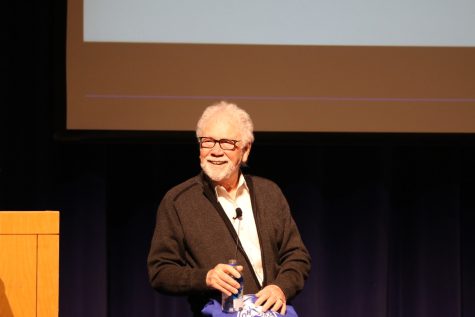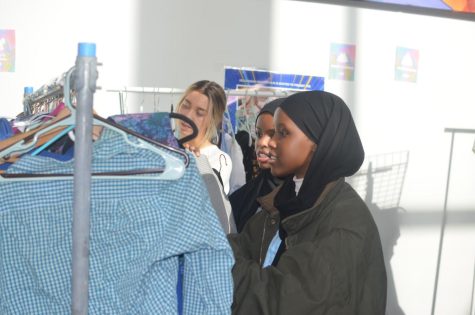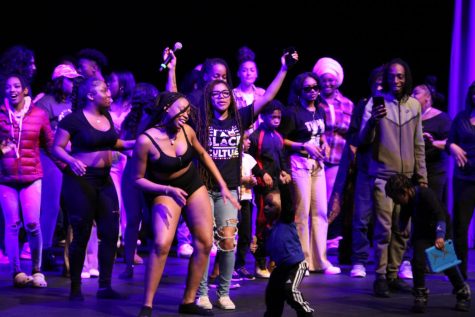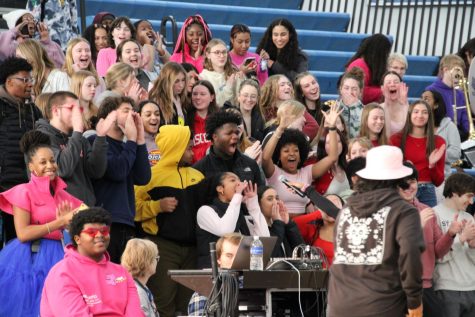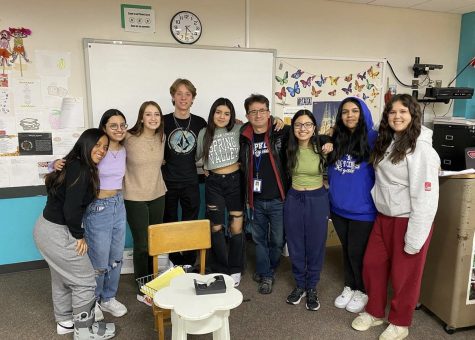Hassan passes test, becomes U.S. citizen
May 29, 2015
For Khadro Hassan, senior, turning 18 didn’t automatically grant her the right to vote. Rather, it allowed her the right to take her U.S. citizenship test—an extra step Hassan had to take before receiving the rights of all American citizens.
“The one thing that I look forward to with becoming a U.S. citizen is being able to actually vote and participate,” Hassan said.
Hassan’s family is originally from Somalia, though she was born in a refugee camp in Kenya. Despite being only three years old when she moved, Hassan still has memories from Kenya.
“I remember when I was little we lived in a mud and straw hut put together in our refugee camp. When I was little, my mom would put me in the clothes she had when she was younger, and I would run around. If my shoes broke, I would take it to a person in the market who fixed shoes,” Hassan said.
Hassan came to Minnesota in 1999 with several family members to meet her uncle. Since then, many members of her family left or are still leaving Kenya and journeying to Minnesota or other parts of the world.
“Slowly, a lot of us are moving here,” Hassan said. “Outside of Somalia, Minnesota has the largest Somali population, which makes it sorta seem like you’re in Somalia sometimes, other than the snow.”
Up until this year, when she passed the test and gained citizenship status, Hassan had been granted long-term residence through a green card, which allows people to be employed and reside in the United States. When Hassan turned 18, she had the choice of either renewing her green card or applying for citizenship.
“It made more sense for me to take my citizenship test because I would get all the benefits of being an American citizen. I chose to do that rather than go through the work of verifying a bunch of things to reapply for a green card,” Hassan said.
The citizenship test consists of four portions: speaking, reading, writing, and 100 civics questions. In order for her answers on the civics test to be considered correct, Hassan had to memorize each answer word for word. Her friend Nayeli Briones, senior, helped her prepare.
“She seemed kinda worried so I figured I should help her,” Briones said. “I think the questions came pretty easy to her, but she did try to practice a lot. During TASC, or whenever we had free time, I would just quiz her the questions on the list, and she would answer.”
Preparing for the civics test was tedious. However, Hassan feels that there is value to that section of the test.
“I think [the civics portion of the test] is somewhat necessary because some people who weren’t born in this country may need to learn things for their civil rights,” Hassan said. “Some of the questions are really important. For example, there’s a question that says, ‘How can you take part in your democracy?’”
While Hassan notes that her green card granted her many of the same rights as a full citizenship, she admits its inconveniences.
“The hardest thing for me was when I was applying for a new job, and they asked for identification, I would give them my green card. They wouldn’t know what to do with it so I would have to explain everything,” Hassan said. “Some employers would ask if having a green card means I’m legally able to work in the United States. Times like that it was kind of a burden.”
Hassan is happy to have completed the citizenship test surrounded by a community of people who understand the process.
“If you go to any place that is predominantly Somali, like the neighborhoods on Riverside, then you would feel like you’re in a community of people who understand you and understand the same struggles as you,” Hassan said. “Some people are going through the same boat as me, so it didn’t seem that abnormal to have take my citizenship test. It’s just another thing you have to do.”

